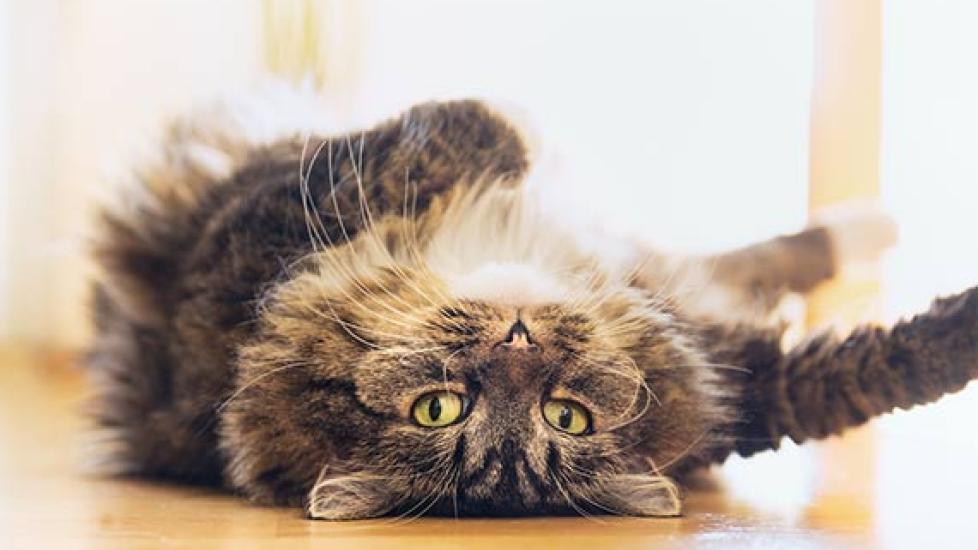Want Your Cat to Love You? Put Him On a Diet
The numbers vary depending on what study you look at, but there is no doubt that cats in the United States are getting fatter. The latest National Pet Obesity survey estimates that 57.9% of our cats are overweight or obese, and the sad truth is that in all but the rarest of cases, the fault lies with us rather than them.
Cats that spend a significant amount of time outside have a lower incidence of obesity than do indoor-only cats. Now, I’m not recommending that we kick our cats outdoors. I simply use this fact to show that the greater level of control people have over cats, the higher the chances are that they will be fat.
The problem is related to two common features of an indoor-only lifestyle:
- unlimited access to food
- boredom.
Free-feeding is the most popular method of feeding cats. The benefits are clear:
- simplicity
- cats don’t harass us for food
The down-side—weight gain—is far more insidious. Cats are just like us; when they’re bored, they have a tendency to eat even if they are not hungry. The calculation is quite simple:
Unlimited Access to Food + Boredom = Fat Cat
I get that putting your cat on a diet is tough. Most of us have tried to lose weight at some point in our lives, and the discipline that is required is just not any fun. Why would we want to impose such unpleasantness on our feline family members? Easy. Obesity has a devastating effect on a cat’s health and wellbeing, including an increased risk of diabetes, painful musculoskeletal problems, hepatic lipidosis (a potentially fatal type of liver disease), and some types of skin disease and cancer.
But I’ve got some good news. Recent research shows that your cats will not hate you if you put them on a diet. Scientists fed 58 obese cats one of three diets (high-fiber, a maintenance formula, and high-protein/low-carbohydrate) in amounts that should produce significant weight loss and had their owners monitor their cats' behavior before and after meals. The cats were also switched from free choice feeding to meals.
At the four week mark, 81% of the cats who were brought in for a check-up had lost weight. By eight weeks, 76% of cats had done so. Here’s what the study revealed with regards to the cats’ behavior.
Cats did beg more before meals regardless of what food was fed. They meowed, followed their owners, and paced more than they did prior to being put on the diet. However, the length of time that they performed these behaviors did not increase. In other words, the cats were more annoying before meals, but not annoying for a greater length of time. The authors also stated:
None of the truly undesirable behaviors, such as urine spraying or aggression to the owner, occurred with food restriction sufficiently often to warrant statistical testing, a fact that may encourage owners to restrict their obese cats’ [food] intake. Specifically, urine marking was not increased in any cats, and aggression was increased in very few.
Interestingly, owners reported that their cats actually became more affectionate while on the diet.
Okay folks, no more excuses. Put your fat cats on a diet and start feeding meals rather than leaving food out all the time. Not only will your cats not hate you, they may actually be more affectionate as a result.
Related
